Related Research Articles
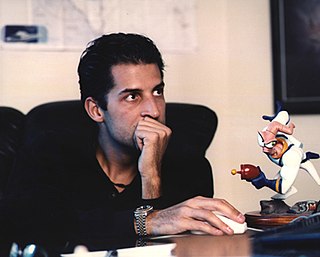
David Perry is a Northern Irish video game developer and programmer. He became prominent for programming platform games for 16-bit home consoles in the early to mid 1990s, including Disney's Aladdin, Cool Spot, and Earthworm Jim. He founded Shiny Entertainment, where he worked from 1993 to 2006. Perry created games for companies such as Disney, 7 Up, McDonald's, Hemdale, and Warner Bros. In 2008 he was presented with an honorary doctorate from Queen's University Belfast for his services to computer gaming. He was the co-founder & CEO of cloud-based games service Gaikai, which was acquired by Sony Computer Entertainment. In 2017 Perry became the co-founder & CEO of a customer intelligence startup called GoVYRL, Inc. developing a new advanced brand dashboard called Carro.
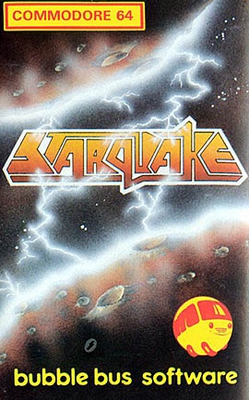
Starquake is an action-adventure platform game written by Stephen Crow for the ZX Spectrum and published by Bubble Bus Software in 1985. It was ported to the Commodore 64, MSX, Amstrad CPC, Atari 8-bit family, Tatung Einstein, the BBC Micro (1987) and IBM compatibles and Atari ST.

Virgin Interactive Entertainment was the video game publishing division of British conglomerate the Virgin Group. It developed and published games for major platforms and employed developers, including Westwood Studios co-founder Brett Sperry and Earthworm Jim creators David Perry and Doug TenNapel. Others include video game composer Tommy Tallarico and animators Bill Kroyer and Andy Luckey.

Gremlin Graphics Software Limited, later Gremlin Interactive Limited and ultimately Infogrames Studios Limited was a British software house based in Sheffield, working mostly in the home computer market. Like many software houses established in the 1980s, their primary market was the 8-bit range of computers such as the ZX Spectrum, Amstrad CPC, MSX, Commodore 16 and Commodore 64. The company was acquired by French video game publisher Infogrames in 1999 and was renamed Infogrames Studios in 2000. Infogrames Studios closed down in 2003.

Graftgold was an independent computer game developer that came to prominence in the 1980s, producing numerous computer games on a variety of 8-bit, 16-bit and 32-bit platforms.
Telecomsoft was a British video game publisher and a division of British Telecom. The company was founded by Dr. Ederyn Williams in 1984 and operated three separate labels: Firebird, Rainbird, and Silverbird. The first employee was James Leavey, seconded from elsewhere in BT, who, along with Tony Rainbird, became the driving force behind the company in the early days.
Ocean Software Ltd was a British software development company that became one of the biggest European video game developers and publishers of the 1980s and 1990s.
Hewson Consultants were one of the smaller software companies which produced video games for home computers in the mid-1980s. They had a reputation for high-quality games which continually pushed the boundaries of what the computers were capable of and can be compared favourably with other ground-breaking software houses like Ultimate Play the Game and Beyond. Fourteen of their games were awarded "Megagame" by Your Sinclair.
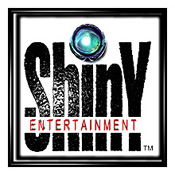
Shiny Entertainment, Inc. was an American video game developer based in Laguna Beach, California. Founded in October 1993 by David Perry, Shiny was the creator of video games such as Earthworm Jim, MDK and Enter the Matrix. Perry sold the company to Interplay Productions in 1995, which sold the studio to Infogrames, Inc. in 2002. After Foundation 9 Entertainment acquired Shiny in 2006, the company was merged with The Collective in October 2007, creating Double Helix Games.

Underwurlde is a 1984 action-adventure platform video game in the Sabreman series by Ultimate Play the Game for the ZX Spectrum and Commodore 64. The player controls the adventurer Sabreman as he jumps between platforms in a castle and its caverns to find an escape past the exit guardians. Underwurlde features about 600 flip screen areas. Unlike other games of its time, Sabreman is not injured when touched by enemies and is instead knocked backwards. Underwurlde is the second game in the series, between Sabre Wulf and Knight Lore, and released alongside the latter for the ZX Spectrum during Christmas in 1984. Another developer, Firebird, ported the game to the Commodore 64 the following year.

Jukka Tapanimäki was a Finnish game programmer from Tampere, Pirkanmaa. Tapanimäki wrote his games for the Commodore 64 computer, and many have been ported to other computer systems. Tapanimäki was a reviewer for MikroBitti and "C" computer magazines; and a freelance writer of advanced-level computer programming articles. He also published a book called C-64 Pelintekijän Opas in 1990.
Raffaele Cecco, born 10 May 1967, is a British video games developer who has created numerous video games since 1984, including Cybernoid and Exolon. He grew up in Tottenham in North London. Spurred by an interest in computers, he received his first computer, a Sinclair ZX81, as a birthday gift from his parents in 1981 and began programming simple games in BASIC.
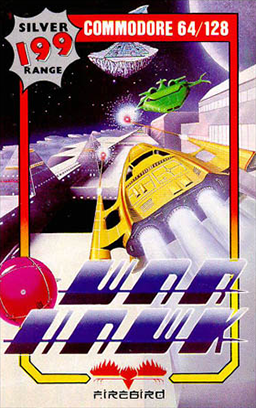
Warhawk is a vertically scrolling shooter published in 1986 by Firebird software. It was released for the Commodore 64, Atari 8-bit family, Amstrad CPC, and Atari ST.
Steve Turner is a former computer game musician and designer. His development team, Graftgold, mostly wrote for games published by Hewson Consultants during the 1980s.
Dominic Robinson is a computer game programmer. He came to prominence as an in-house programmer for Hewson Consultants when he converted Uridium to the Spectrum in 1986. This was followed by another classic Spectrum shoot-em up, Zynaps, and a puzzle/shooter, Anarchy, both of which were released in 1987. After leaving Hewson, he joined Graftgold to work on the Spectrum conversion of Flying Shark, as well as the Amiga and Atari ST versions of Simulcra and Rainbow Islands.
Andrew Glaister is a video game programmer.
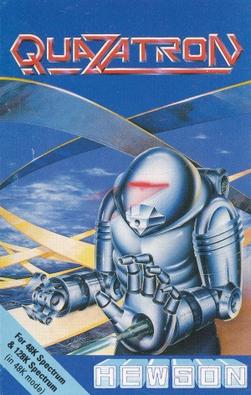
Quazatron is an action game developed by Graftgold, and released in 1986 by Hewson Consultants. It was designed by Steve Turner for the ZX Spectrum.
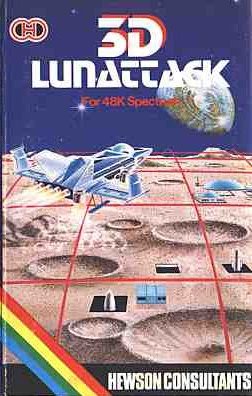
The Seiddab Trilogy is a series of video games designed by Steve Turner for the ZX Spectrum and published by Hewson Consultants. It consists of 3D Space-Wars (1983), 3D Seiddab Attack (1984), and 3D Lunattack. All three games were later published together as The Seiddab Trilogy by Hewson for the Rotronics Wafadrive. The series name is derived from the word "baddies" being spelt in reverse.
Nicholas Anthony Bruty, known as Nick Bruty, is a British video game designer and entrepreneur, known for work on video games such as Earthworm Jim, Earthworm Jim 2, and MDK.
References
- ↑ EWJ TGSMA Team - Steve Crow Retrieved on 17 July 2007
- ↑ The 1986 Crash Readers' Awards Best Programmer Retrieved on 2 August 2007
- ↑ "Computer & Video Games".